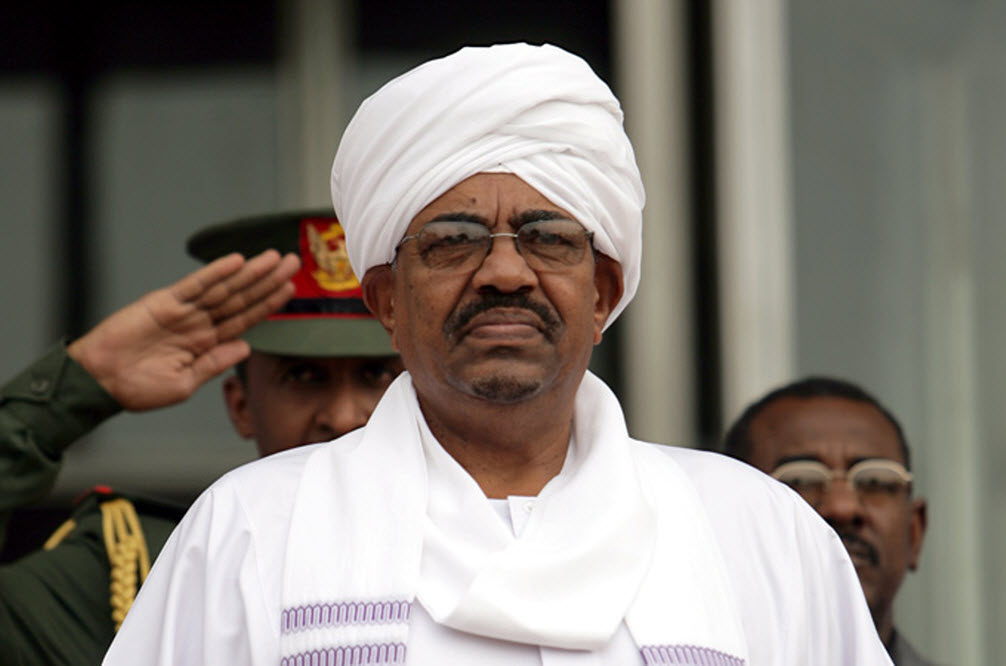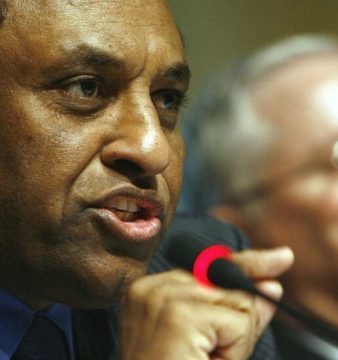Al Bashir’s Speech Fuels More Protests

Sudanese President Omar Al Bashir delivered a televised broadcast speech at the Presidential Palace on Friday, 22 February 2019, declaring a nationwide year-long state of emergency, following two months of deadly anti-government protests.
Countering protests calling for his removal from office, Al Bashir also announced that he dissolved the cabinet, and as well as federal and state governments throughout the country. He kept six federal ministers and replaced 18 state governors with military generals. He also announced postponing constitutional amendments that would allow him to run for another term in a presidential election in 2020.
In his speech, Al Bashir acknowledged Sudan’s economic crisis that first triggered protests in December 2018, but then said the protests had been hijacked by ‘agendas’. He also acknowledged the deaths of protesters.
Since the protests began on 19 December, at least 50 people have been killed, hundreds injured and more than a 1,000 arrested.
Under a state of emergency in Sudan, security forces will have greater power specifically to make more arrests and hold more protesters in detention.
On the first day of a state of emergency in Sudan, Al Bashir replaced Bakri Hassan Saleh with Defence Minister General Awad Ibnoufas as vice president and elevated governor of El Gezira state Mohamed Tahir Ayala to prime minister. Other appointments are yet to be announced.
The speech triggered protests across Sudan. After the speech, demonstrations immediately resumed, some continuing until morning in Khartoum, Omdurman, Al Kalakla, El Gezira and more.
Sounding off of the popular revolution slogan, تسقط بس , which translates to ‘Just fall, that’s all’, the speech triggered the hashtag, آلشارع_بس# , meaning ‘Just the street’, indicating that protesters will continue to protest on the streets.
Online Sudanese activists respond to President Omar al-Bashir’s speech with the hashtag #الشارع_بس , roughly translated to “the street only” or “just the street “ signaling a continuation of protests #Sudan
— Isma’il Kushkush (@ikushkush) February 23, 2019
Protests were already reported before and during the speech. News already broke out of Al Bashir’s upcoming speech, announcing the year-long state of emergency as well as possibly resigning from the ruling National Congress Party (NCP). Intelligence chief, Salah Abdullah Gosh, briefed journalists earlier on Friday 22 February that the president would step down as head of NCP. However, Al Bashir did not address or confirm it during his speech.
After Al Bashir’s speech, the Sudanese Professional Association (SPA), which has been playing a leading role in initiating the protests, called on people to take to the streets and protest.
نداء |
ندعو الشعب السوداني الحر المنتصر وجموع الثوار للخروج الآن للتظاهر في كل المدن والأحياء والفرقان، فساعة النصر دنت والنظام في حالة انهيار.
قوى إعلان الحرية والتغيير
٢٢ فبراير ٢٠١٩م#الشارع_بس #مدن_السودان_تنتفض— تجمع المهنيين السودانيين (@AssociationSd) February 22, 2019
The biggest protest was reported on Al Siteen St in Khartoum, adjacent to Al Jerif West and Al Taif, attempting to march to the Presidential Palace.
شارع الستين
الموكب الضخم متجه نحو القصر..#تسقط_بس pic.twitter.com/LFlJZvtYEB— Ibn3uf (@HussamIbnouf) February 22, 2019
موكب الستين #تسقط_بس pic.twitter.com/etb4nrKFYS
— Samih Mubarak (@Samih075) February 22, 2019
الآن التقاء موكبي الجريف و المعمورة و اغلاق تام لشارع الستين 🔥🔥🔥#تسقط_بس pic.twitter.com/ZYtPFAurU0
— Tahir (@teeeeto_) February 22, 2019
There are no signs that the protests will yield. According to SPA, protests would continue until Al Bashir steps down.
The protests were triggered by a hike in prices of basic commodities such as bread and fuel shortages, thousands of protesters have taken to streets across Sudan, calling for the downfall of Al Bashir and his regime. Government forces have responded to protests with live ammunition, rubber bullets and tear gas.




